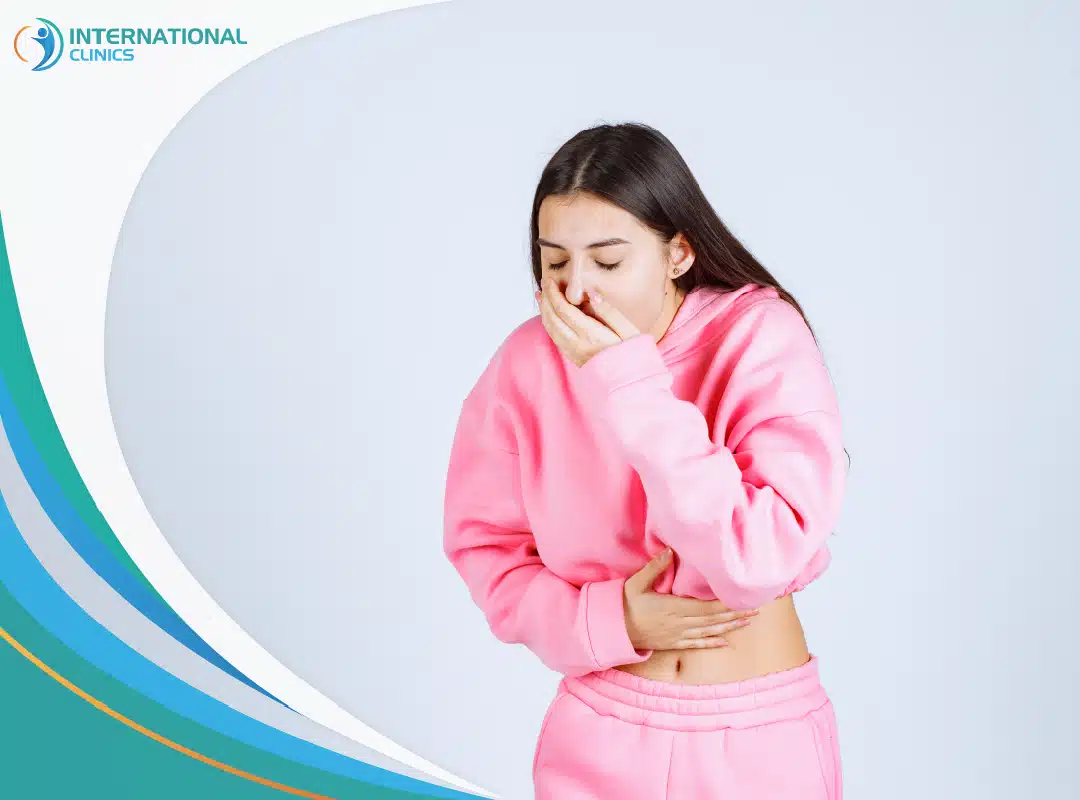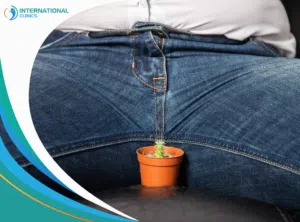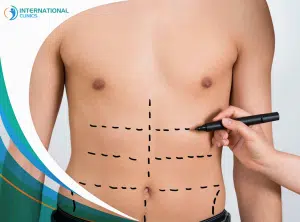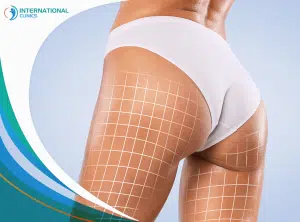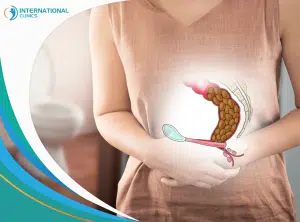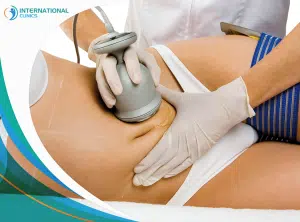Liposuction is a very effective fat-reduction technique that can produce noticeable results in a very short time. However, like all surgeries, liposuction may produce undesirable side effects. Nausea after liposuction is one of the most reported issues during recovery, especially among women.
Doctors call this condition “postoperative nausea and vomiting (PONV)” and it’s fairly common after any surgery, including plastic surgery. Indeed, some studies have shown that around 50% of people experience nausea after surgery. However, the severity of nausea after surgery varies from one case to another and it usually subsides quickly.
What Is Nausea After Liposuction?

Nausea after liposuction refers to having an uneasy sensation in the stomach or the constant urge to vomit. However, nausea may or may not occur in conjunction with vomiting. In any case, nausea after liposuction can be unpleasant and hinder your recovery.
It may make it difficult for you to return to your normal eating and drinking habits. If nausea occurred with vomiting, your condition may become more severe and can cause dehydration or discomfort.
Although nausea and vomiting after liposuction can be treated easily, some people may quickly feel disappointed and start regretting having liposuction in the first place, but this is uncommon as nausea and vomiting subside within a few days after the procedure. In addition, severe nausea after liposuction is extremely rare.
Causes of Nausea After Liposuction
There are several reasons why nausea may occur after liposuction, including:
Anesthesia
The use of anesthesia, either local or general, can increase the risk of nausea and vomiting after liposuction. This has to do with the normal physiological reactions to anesthetic agents used to sedate the body.
Misuse of Medications
taking medications on an empty stomach or taking them at the wrong times or with the wrong doses can affect recovery and make you more susceptible to nausea and vomiting. The same thing could occur if you ignored taking the preventative medications that your doctor has prescribed for you.
Quick Return to Normal Diet
Although there is no specific diet that you need to follow after liposuction, you must wait for a couple of days before returning quickly to your normal diet after the procedure.
Gender
Women are more likely to experience nausea after surgery because the female body can interact peculiarly with anesthesia. However, women remain the majority of liposuction seekers.
Obesity
Obesity affects the required amounts of anesthesia needed during the surgery. This is one of the reasons why most surgeons refuse to provide liposuction to overweight or plus-sized individuals.
Other Causes
The technique or type of liposuction used is also a factor that may increase the likelihood of nausea after liposuction. Laser liposuction, for instance, may lead to less nausea compared to conventional liposuction. Also, nausea is more likely to occur if the surgeons take a longer time performing the surgery or if the patient has developed dehydration.
Treatment of Nausea After Liposuction

Dealing with nausea after any surgery isn’t that challenging, except in some cases. Surgeons usually provide high-risk patients with antiemetic medications that can relieve nausea rather quickly. Besides antiemetic medications, you can help your body overcome nausea and vomiting by doing the following:
- Drink enough water intake to help your body flush toxins and adjust to the anesthesia.
- Consume probiotics to improve the health of the stomach lining and reduce the side effects of the anesthesia.
- Eat only soft foods or soups, which are easier on the stomach after surgery and can help reduce nausea.
- Try natural teas and supplements, such as ginger tea, which is known for its antiemetic effects.
How to Prevent Nausea After Liposuction?
Preventing nausea after liposuction starts before the patient even goes to the operating room. Skilled surgeons can spare the discomfort of nausea in their patients by following a PONV protocol, which includes the use of a “Scopolamine patch” before the surgery and the administration of other drugs during the procedure. They also may be able to choose medications that are less likely to cause nausea and vomiting.
However, the things you consume before and after surgery can greatly impact how your body responds to anesthesia. Staying hydrated before and after surgery can also help prevent nausea. Pain can increase the likelihood of vomiting, meaning that pain management is very important after surgery. Other preventive measures include:
- Return slowly to your normal diet
- Avoid strong smells and stimulants
- Drink ginger tea before the surgery (after taking your surgeon’s permission)
- Avoid carbonated drinks, which can worsen nausea
Other Troublesome Symptoms After Liposuction
Nausea after liposuction isn’t the only problem that patients may experience after they return home from the hospital or clinic. In fact, there is a range of other troublesome symptoms that patients often report after liposuction. Below are the most common ones:
- Infections
- Bruising, swelling, or edema
- Hematomas or localized bleeding under the skin
- Seromas or fluid leaking under the skin
- Skin necrosis or the death of skin cells
- Skin color changes or dimpled skin
- Abnormal skin sensations
- Numbness
Liposuction Alternatives
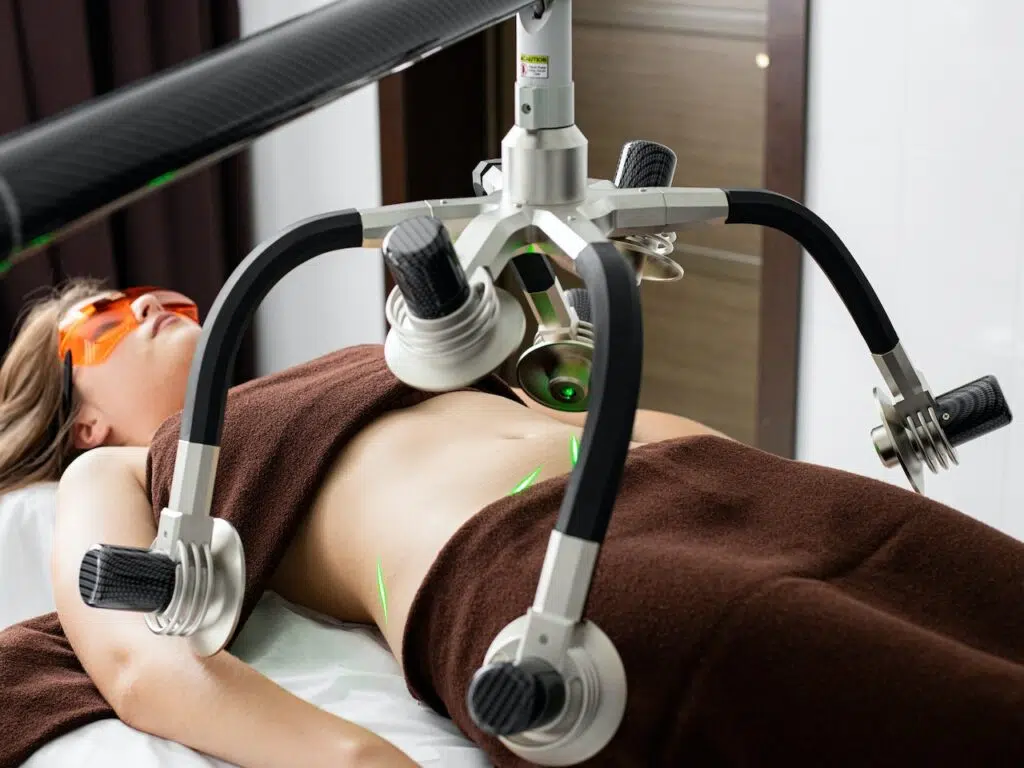
Liposuction is a body sculpting that involves removing excess fat from the body through a cannula. Undoubtedly, liposuction remains one of the most effective fat reduction techniques as it can target different areas in the body, such as the legs, arms, and abdomen.
However, it requires a longer recovery period and may lead to undesirable side effects such as nausea and vomiting. On top of all that, the cost of liposuction is not always affordable to people, leading many of them to search for alternatives, especially non-surgical options.
Nonsurgical fat reduction treatments, such as CoolSculpting, truSculpt, and BodyTite, use different methods to target and eliminate unwanted fat cells without the need for surgery. CoolSculpting uses cryolipolysis to freeze fat cells, while truSculpt and BodyTite use radiofrequency technology to tighten skin and reduce fat deposits.
These nonsurgical treatments may be suitable for people who want to target small areas of fat. They require shorter recovery time and may cost less than liposuction, but they often require more sessions and may not produce the remarkable results of liposuction.
The Bottom Line
Nausea and vomiting are among the most common side effects after liposuction. They resolve on their own after a couple of days, but in some cases, they may persist and require medications to be dealt with. Surgeons provide their patients with antiemetic medications, especially for those at high risk of nausea.
Surgeons at International Clinics are fully aware of postoperative symptoms that people often report after liposuction and other plastic procedures. To prevent these symptoms, they follow certain protocols and provide their patients with different instructions to maintain the highest level of safety.
Frequently Asked Questions
Is Nausea Normal After Liposuction?
Nausea is a common side effect after liposuction, especially in the first couple of days after the procedure. Most patients can rely on simple diet adjustments and over-encounter medications to relieve nausea.
How Long Does Post Surgery Nausea Last?
In most cases, nausea subsides within 1- 2 days after surgery. It’s very rare, however, for nausea to persist for more than a week following any surgery, except in some high-risk cases.
What Causes Nausea 3 Days After Surgery?
Feeling nausea after 3 days of surgery could be the result of medication misuse or taking them on an empty stomach. Some cases are more prone to nausea than others, especially if they already suffer from other medical conditions.
What Type of Liposuction Has the Highest Complication Rate?
The highest complication rate is associated with liposuction involving the removal of a large volume of fat, such as plus-size liposuction or extreme liposuction.
Can Lipo Damage Organs?
Lipo can damage or puncture internal organs and nerves, but this is extremely rare and only happens if the surgeon is inexperienced or uses outdated equipment or large cannulas.
Can Complications from Liposuction Be Fatal?
Liposuction could lead to fatal complications in a very small number of cases, mainly high-risk individuals. Such complications may involve blood clots in the lungs, heart and kidney problems, and even death.
Is Liposuction Worth Getting?
Regardless of possible risks and complications, liposuction remains one of the safest and highly sought-after cosmetic surgeries because it can produce tangible, very noticeable results fairly quickly and semi-permanently.
Read more: Liposuction in Turkey: Your Ultimate Guide
